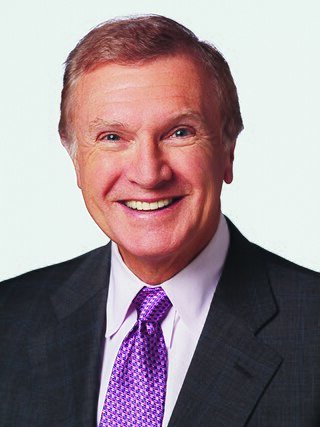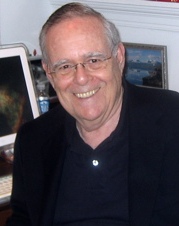Industrial and organizational psychology "focuses the lens of psychological science on a key aspect of human life, namely, their work lives. In general, the goals of I-O psychology are to better understand and optimize the effectiveness, health, and well-being of both individuals and organizations." It is an applied discipline within psychology and is an international profession. I-O psychology is also known as occupational psychology in the United Kingdom, organisational psychology in Australia and New Zealand, and work and organizational (WO) psychology throughout Europe and Brazil. Industrial, work, and organizational (IWO) psychology is the broader, more global term for the science and profession.

Daniel Goleman is an American psychologist, author, and science journalist. For twelve years, he wrote for The New York Times, reporting on the brain and behavioral sciences. His 1995 book Emotional Intelligence was on The New York Times Best Seller list for a year and a half, a bestseller in many countries, and is in print worldwide in 40 languages. Apart from his books on emotional intelligence, Goleman has written books on topics including self-deception, creativity, transparency, meditation, social and emotional learning, ecoliteracy and the ecological crisis, and the Dalai Lama's vision for the future.
Applied psychology is the use of psychological methods and findings of scientific psychology to solve practical problems of human and animal behavior and experience. Educational and organizational psychology, business management, law, health, product design, ergonomics, behavioural psychology, psychology of motivation, psychoanalysis, neuropsychology, psychiatry and mental health are just a few of the areas that have been influenced by the application of psychological principles and scientific findings. Some of the areas of applied psychology include counseling psychology, industrial and organizational psychology, engineering psychology, occupational health psychology, legal psychology, school psychology, sports psychology, community psychology, neuropsychology, medical psychology and clinical psychology, evolutionary psychology, human factors, forensic psychology and traffic psychology. In addition, a number of specialized areas in the general area of psychology have applied branches. However, the lines between sub-branch specializations and major applied psychology categories are often mixed or in some cases blurred. For example, a human factors psychologist might use a cognitive psychology theory. This could be described as human factor psychology or as applied cognitive psychology. When applied psychology is used in the treatment of behavioral disorders there are many experimental approaches to try and treat an individual. This type of psychology can be found in many of the subbranches in other fields of psychology.
Organizational behavior or organisational behaviour is the "study of human behavior in organizational settings, the interface between human behavior and the organization, and the organization itself". Organizational behavioral research can be categorized in at least three ways:
Robert Charles Pozen, known as "Bob", is an American financial executive with a strong interest in public policy. He is the former chairman of MFS Investment Management, the oldest mutual fund company in the United States. Previously, Pozen was the President of Fidelity Investments.

Workforce productivity is the amount of goods and services that a group of workers produce in a given amount of time. It is one of several types of productivity that economists measure. Workforce productivity, often referred to as labor productivity, is a measure for an organisation or company, a process, an industry, or a country.
A toxic leader is a person who abuses the leader–follower relationship by leaving the group or organization in a worse condition than it was in. Toxic leaders therefore create an environment that may be detrimental to employees, thus lowering overall morale in the organization.
Organizational behavior management (OBM) is a subdiscipline of applied behavior analysis (ABA), which is the application of behavior analytic principles and contingency management techniques to change behavior in organizational settings. Through these principles and assessment of behavior, OBM seeks to analyze and employ antecedent, influencing actions of an individual before the action occurs, and consequence, what happens as a result of someone's actions, interventions which influence behaviors linked to the mission and key objectives of the organization and its workers. Such interventions have proven effective through research in improving common organizational areas including employee productivity, delivery of feedback, safety, and overall morale of said organization.

William C. Byham is an American entrepreneur, author and industrial/organizational psychologist.
Jeffrey Pfeffer is an American business theorist and the Thomas D. Dee II Professor of Organizational Behavior at the Graduate School of Business, Stanford University, and is considered one of today's most influential management thinkers.
Teresa M. Amabile is an American academic who is the Edsel Bryant Ford Professor of Business Administration in the Entrepreneurial Management Unit at Harvard Business School.

Michael Maccoby was an American psychoanalyst and anthropologist globally recognized as an expert on leadership for his research in improving organizations and the nature of work. He authored or co-authored fourteen books and consulted to companies, governments, the World Bank, unions, research and development centers and laboratories, universities and orphanages or taught in 36 countries. Maccoby's article, Narcissistic Leaders: the Incredible Pros, the Inevitable Cons written in January 2000, was awarded a McKinsey Award from the Harvard Business Review.
Positive psychology is defined as a method of building on what is good and what is already working instead of attempting to stimulate improvement by focusing on the weak links in an individual, a group, or in this case, a company. Implementing positive psychology in the workplace means creating an environment that is more enjoyable, productive, and values individual employees. This also means creating a work schedule that does not lead to emotional and physical distress.
A “toxic workplace” is a colloquial metaphor used to describe a place of work, usually an office environment, that is marked by significant personal conflicts between those who work there. A toxic work environment has a negative impact on an organization's productivity and viability. This type of environment can be detrimental to both the effectiveness of the workplace and the well-being of its employees.

Quiet: The Power of Introverts in a World That Can't Stop Talking is a 2012 nonfiction book written by American author and speaker Susan Cain. Cain argues that modern Western culture misunderstands and undervalues the traits and capabilities of introverted people, leading to "a colossal waste of talent, energy, and happiness."

Andrew Paul McAfee is a principal research scientist at MIT and cofounder and codirector of the MIT Initiative on the Digital Economy at the MIT Sloan School of Management. He studies how digital technologies are changing the world.
Narcissism in the workplace involves the impact of narcissistic employees and managers in workplace settings.
While psychopaths typically represent a very small percentage of workplace staff, the presence of psychopathy in the workplace, especially within senior management, can do enormous damage. Indeed, psychopaths are usually most present at higher levels of corporate structure, and their actions often cause a ripple effect throughout an organization, setting the tone for an entire corporate culture. Examples of detrimental effects include increased bullying, conflict, stress, staff turnover, absenteeism, and reduction in both productivity and social responsibility. Ethical standards of entire organisations can be badly damaged if a corporate psychopath is in charge. A 2017 UK study found that companies with leaders who show "psychopathic characteristics" destroy shareholder value, tending to have poor future returns on equity.
Ellen Ernst Kossek is an American academic and social scientist who is known for research on work, family, and personal life. She is the Basil S. Turner Distinguished Professor at Purdue University’s Mitchell E. Daniels, Jr. School of Business. She previously served as the Research Director of the Susan Bulkeley Butler Center for Leadership Excellence for Purdue University’s Provost’s Office and as a University Distinguished Professor at Michigan State University’s School of Human Resources and Labor Relations. She received her Bachelor of Arts degree from Mount Holyoke College, her Master of Business Administration from the Stephen M. Ross School of Business at the University of Michigan and her Ph.D from Yale University. She has work experience in international and strategic human resource management working in Asia, Europe and the U.S. for Hitachi, IBM & GTE. Dr. Kossek works globally to advance knowledge on gender and diversity, employment practices to support work and family, and the development of leader and positive workplace cultures to support well-being and productivity. Her research has been featured in national and international media such as the Financial Times, National Public Radio, the Wall Street Journal, Forbes magazine, Time magazine, Marketplace, and the Washington Post.

Caroline Michelle Christine Webb is a British author, economist and executive coach. Her book, How to Have a Good Day, argued that insights from behavioural economics, psychology and neuroscience can be used to improve working life. She is a frequent contributor to Harvard Business Review, and has also written on behavioural change topics for Fast Company, Wired UK, Quartz, Business Insider and the World Economic Forum. Her work has been featured widely in the media, including in the Financial Times, The Economist, The New York Times, The Guardian, Time, Inc., Forbes, Business Insider, The Daily Telegraph, BBC Radio and ABC Radio National.







